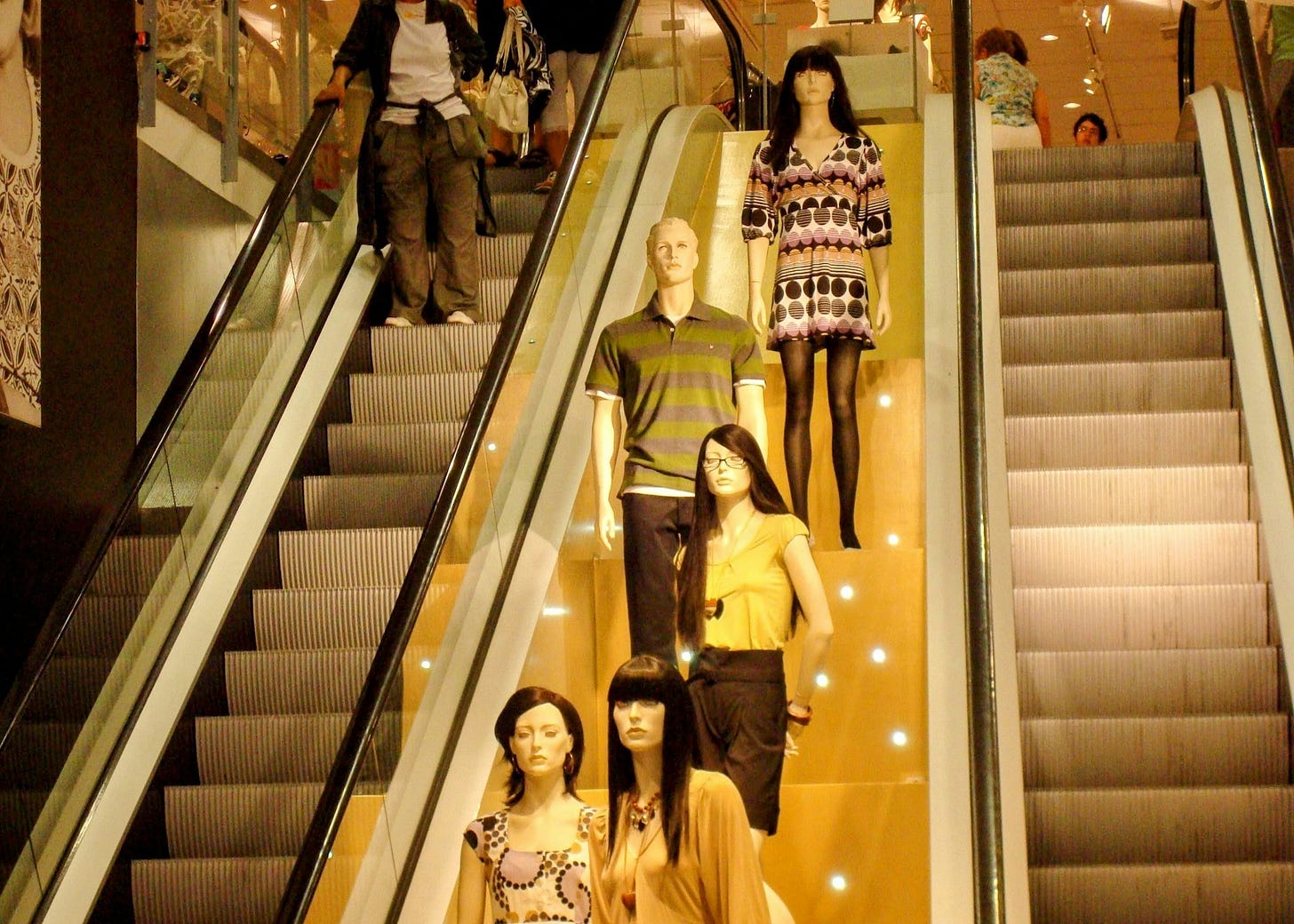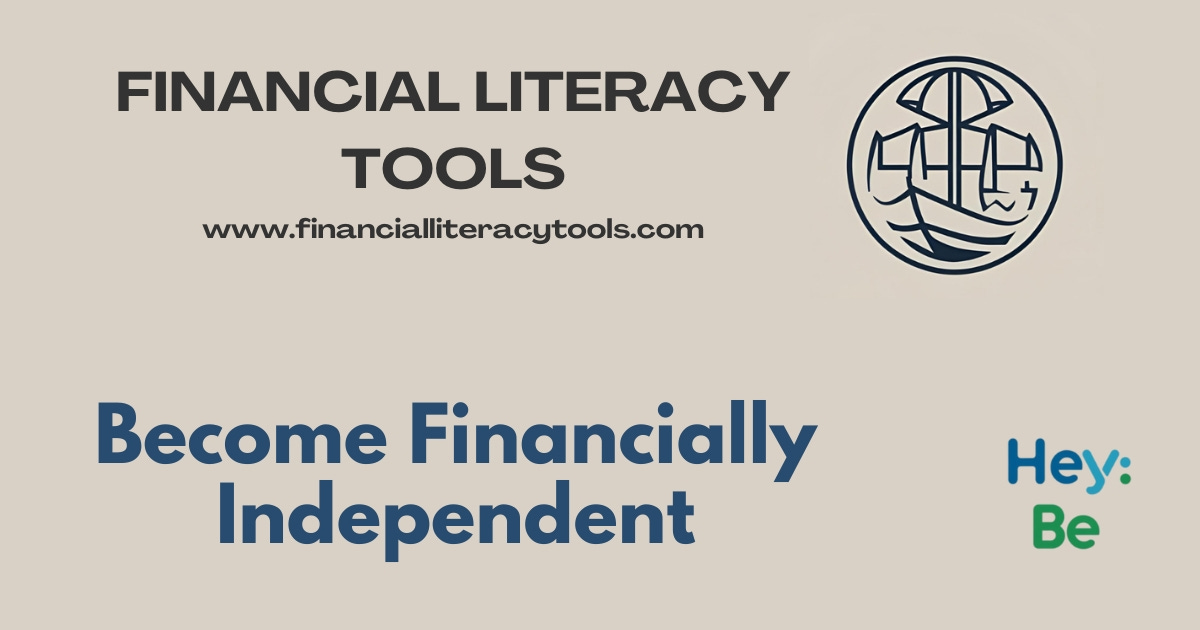- Financial Literacy Newsletter
- Posts
- You Are What You Buy (And What You Buy Is Stupid)
You Are What You Buy (And What You Buy Is Stupid)
The Tribal Economics of Financial Self-Destruction 🛍️
Welcome back, fellow consumers of financial wisdom and overpriced lattes! I'm genuinely impressed that you've stuck around this long. Either you're developing actual financial literacy, or you've developed Stockholm syndrome from my weekly abuse. Either way, we're making progress. Remember, if you really want to get financially literate, you gotta visit this directory.
Last week, we explored how your brain is basically a marketing department's dream client—eager to pay more for identical products just because of a price tag. Today, we're diving into something even more insidious: how your purchasing decisions aren't really about the products at all. They're about identity signaling—your desperate attempt to broadcast your membership in various social tribes.
Spoiler alert: You're buying your way into tribes that don't actually want you, can't afford you, and are probably laughing at you behind your back.
If you missed last week's delightful exploration of why you overpay for everything, here's the link:
The $7 Starbucks Declaration of Independence
Let's start with something simple: your coffee habits. You think you're buying caffeine, but you're actually purchasing a tribal membership card.
That $7 oat milk cortado with extra shot isn't about the coffee—it's about signaling that you're the type of person who drinks $7 coffee. You're broadcasting: "I'm sophisticated enough to appreciate artisanal beverages, successful enough to afford daily luxury, and environmentally conscious enough to choose oat milk."
Meanwhile, the construction worker grabbing a $1.50 coffee from the bodega is getting the exact same caffeine hit for 80% less money. But his coffee doesn't come with the social signaling you crave. His coffee just... wakes him up. How primitive.
The beautiful irony? Most "coffee connoisseurs" can't actually taste the difference between specialty beans and regular coffee in blind taste tests. You're paying $5.50 extra for the story you tell yourself and others about who you are.
The iPhone as a Personality Disorder
Nothing illustrates tribal spending quite like smartphone choices. Android phones often outperform iPhones in specs, battery life, and features—while costing significantly less. But that's not the point, is it?
Owning an iPhone signals membership in the "I appreciate design and simplicity" tribe. The blue text bubbles in group chats mark you as an insider. The seamless ecosystem integration makes you feel like you're part of something elegant.
Meanwhile, Android users are relegated to the "I make rational purchasing decisions based on value and functionality" tribe—which, let's be honest, sounds boring as hell. Who wants to be known for making sensible choices?
You'd rather pay $1,200 for a phone that does 90% of what a $400 phone does, because that extra $800 isn't buying technology—it's buying identity. And identity, my friend, is priceless. Literally. There's no rational price ceiling for identity purchases.
The Luxury Brand Ponzi Scheme
High-end fashion brands have mastered the art of selling status anxiety back to you as a solution. They create artificial scarcity (limited editions!), charge premium prices for basic materials, and then make you feel grateful for the privilege of participating.
That $800 Balenciaga t-shirt is made from the same cotton as a $15 Uniqlo shirt. The difference? The Balenciaga shirt allows you to signal: "I have disposable income and appreciate high fashion." The Uniqlo shirt just... covers your torso. How pedestrian.
But here's the cruel joke: most people can't identify expensive brands unless they see the logo. Remove the logo, and your $800 t-shirt becomes indistinguishable from one that costs $20. You're literally paying hundreds of dollars for the right to be a walking advertisement for a company that charges you for the privilege.
The luxury market has convinced you that their logos on your body somehow elevate your social status. You've become an unpaid billboard who actually pays for the advertising space. It's the perfect business model: customers who pay premium prices to provide free marketing.

The Organic Food Virtue Signal
The organic food market is particularly delicious (pun intended) example of tribal purchasing. Although organic produce offers a safer choice than conventional produce, we both know that you don’t give a rat’s ass about that. Also, studies consistently show that organic produce isn't significantly more nutritious than conventional produce, but it issignificantly more expensive.
But safety isn’t the point here. Nor the nutrition. Buying organic signals membership in the "I care about my health and the environment" tribe. It's a way of saying: "I'm conscious, I'm informed, and I have the disposable income to act on my values."
Meanwhile, the family buying conventional produce because it's what they can afford gets judged for "poisoning their children with pesticides." Because nothing says moral superiority quite like shaming people for their grocery budget.
The beautiful irony? Many "health-conscious" organic buyers offset any potential benefits by pairing their $8 organic kale with $12 craft beer and $15 artisanal ice cream. But the kale purchase allows them to maintain their identity as someone who "eats healthy."
The Tesla: An Electric Vehicle for Your Ego
Tesla owners don't just buy cars—they buy membership in the "I'm environmentally conscious and technologically forward" tribe. Never mind that the environmental impact of manufacturing the battery might offset the emissions savings for years. The point isn't actually saving the planet; it's signaling that you're the type of person who cares about saving the planet.
This is why Tesla owners have become a meme. They don't just drive electric cars—they evangelize them. Because the car isn't just transportation; it's a rolling identity statement that needs constant validation from others.
Meanwhile, someone driving a 10-year-old Toyota Camry gets twice the reliability for one-third the cost, but their car doesn't come with the social signaling value Tesla provides. Their car just... gets them places. How uninspiring.
The Fitness Membership Industrial Complex
Gym memberships are perhaps the most beautiful example of aspirational identity purchasing. You're not buying access to equipment—you're buying the identity of someone who "works out regularly."
This is why most gym memberships go unused, yet people continue paying for them month after month. Canceling the membership would mean admitting you're not actually the type of person who goes to the gym—and that identity death feels worse than the monthly financial death of unused fees.
The gym industry has figured out that selling aspirational identity is more profitable than selling actual fitness. They're not really in the business of making you healthy; they're in the business of making you feel like the type of person who prioritizes health.
Your unused gym membership is a monthly payment for the right to consider yourself "someone who has a gym membership." It's identity rent, and you're a faithful tenant even though you never visit the property.

How to Stop Buying Identity and Start Building Wealth
Here's the uncomfortable truth: every dollar you spend on identity signaling is a dollar that's not growing wealth for your future self. While you're buying tribal membership cards, compound interest is working for people who buy based on value rather than status.
The Identity Audit Exercise
List your last 20 non-essential purchases. For each one, ask:
What tribe was I trying to signal membership in?
Would I still want this product if nobody else could see me using it?
What percentage of the price was for actual utility vs. social signaling?
The results will horrify you. You'll discover you've been paying luxury taxes for the privilege of advertising other people's brands while pretending it's about "quality" or "personal values."
The Generic Challenge
For one month, buy generic or store-brand versions of everything possible. Remove logos from products you already own. The goal isn't to live like a monk forever—it's to discover how much of your spending is driven by brand identity rather than actual product value.
Most people discover they can't actually taste the difference between name-brand and generic food. They can't feel the difference between designer and basic clothing. They realize their expensive products weren't superior—they were just branded.
Much of identity purchasing is driven by the need to curate your online persona. That latte isn't just coffee—it's Instagram content. That vacation isn't just relaxation—it's LinkedIn humble-bragging material.
Try spending money without documenting it online. Buy things you actually need without photographing them. The reduction in identity-driven purchases will shock you.
Subscribe or Keep Funding Other People's Wealth—Your Choice
Look, I genuinely don't care if you subscribe to this newsletter. My ego isn't so fragile that it requires constant validation from subscriber counts, unlike those influencers selling courses on "How to Build Passive Income" while their only passive income comes from selling courses about building passive income.
But if you want to continue receiving these weekly reality checks—the kind that might save you from buying another overpriced tribal membership card disguised as a necessary purchase—then subscribe now. It's free, which makes it possibly the only product you'll encounter today that isn't trying to extract identity tax from your wallet.
Next week, we'll tackle the fascinating psychology of "financial flexibility"—why keeping your options open is often just an expensive way to avoid making decisions, and how the paradox of choice is keeping you perpetually broke. We'll explore why having "freedom to choose" often means choosing to stay financially imprisoned.
Subscribe now because financial literacy is cheaper than financial therapy, and significantly more effective than retail therapy.
P.S. Share this with that friend who just bought another designer handbag to "treat themselves" after a hard week. Maybe they'll realize they're not treating themselves—they're just paying luxury tax for the privilege of being a walking advertisement. Or maybe they'll get defensive and stop asking you to brunch at overpriced places. Either way, you win.
